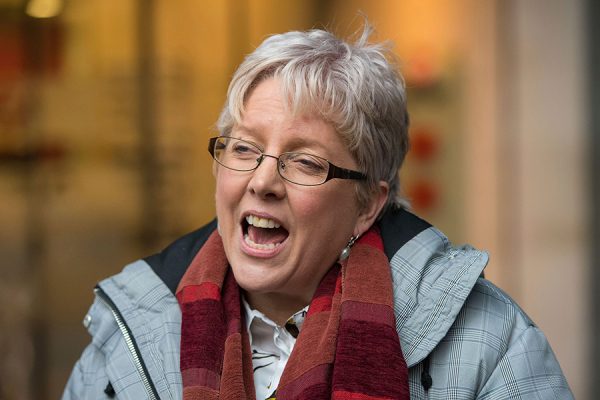
BBC’s China editor has resigned from her post in protest at being paid less than men working for the corporation in similar positions, accusing the corporation of a “secretive and illegal pay culture”.
Carrie Gracie, who became the BBC’s most senior representative in China four years ago, stepped down after learning that her male counterparts were paid significantly more than she was.
Gracie’s revolt is part of the fallout from pay disclosures the British broadcaster was forced to make in July, which showed that two thirds of the highest earners on air were men, and that some of them were earning far more than women in equivalent roles.
Funded by a license fee levied on TV viewers and reaching 95 percent of British adults every week, the BBC is a pillar of the nation’s life, but as such it is closely scrutinized and held to exacting standards by the public and rival media.
Gracie, who speaks fluent Mandarin and has reported on China for three decades, has not left the BBC. She said she was returning to her former post in the TV newsroom in London, where she expected to be paid the same as men in equivalent jobs.
In an open letter to BBC license fee payers, she said: “It is pay discrimination and it is illegal.”
Gracie said she was paid 135,000 pounds ($183,000) a year as China editor. According to July’s disclosures, North America Editor Jon Sopel earned between 200,000 and 250,000 pounds a year, while Middle East Editor Jeremy Bowen was in the 150,000 to 200,000 bracket.
Europe editor Katya Adler, the BBC’s only other female editor in foreign news, did not feature in the disclosures, meaning her pay was less than 150,000 pounds.
Gracie said managers had offered to increase her pay to 180,000 pounds, but that was no solution. She rejected the rise and insisted that all four of the BBC’s international editors should receive equal pay.
“I am not asking for more money. I believe I am very well paid already – especially as someone working for a publicly funded organization. I simply want the BBC to abide by the law and value men and women equally,” she wrote on her website.
She said: “The rise of China is one of the biggest stories of our time and one of the hardest to tell. I cannot do it justice while battling my bosses and a Byzantine complaints process.”
Broadcasters across the country voiced their support for Gracie on Twitter, using the hashtag#istandwithcarrie.
The BBC defended itself by saying its gender pay gap was below the national average and less bad than at many other organizations, adding that it was committed to wiping it out by 2020. It also said an independent audit of rank and file staff had found “no systemic discrimination against women” at the BBC.


